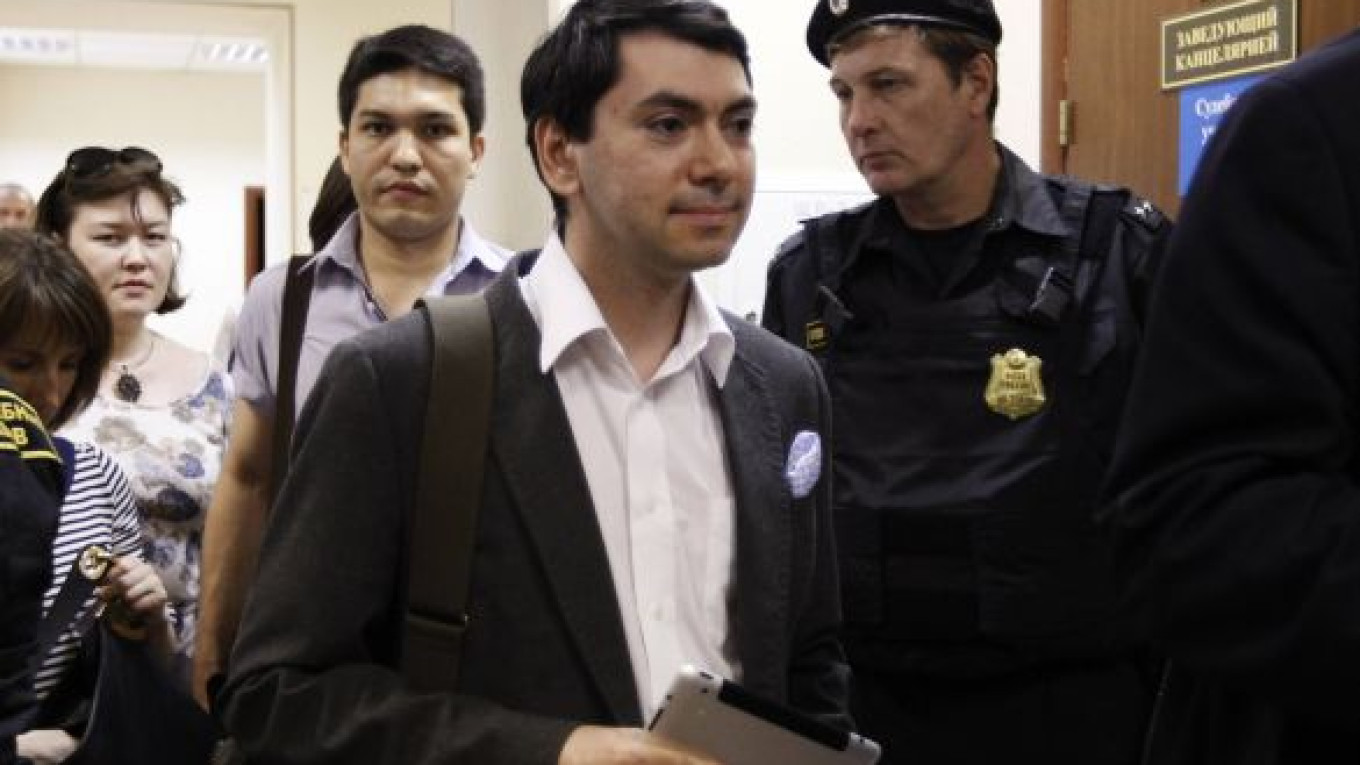The government's legislative commission has approved a draft amendment giving the authorities additional grounds on which to carry out unscheduled inspections of nongovernmental groups that violate Russian law, the Justice Ministry said Tuesday.
According to the draft amendment, checks can be undertaken if violations are not fixed within time limits set by the authorities or if signs of extremism within an organization are reported.
NGOs may also be inspected at the request of the president, government officials or prosecutors.
A law obliging NGOs that receive funding from abroad and are involved in loosely defined “political activity” to register as "foreign agents" was signed by President Vladimir Putin in July 2012. The law has sparked criticism from international and Russian human rights organizations that say the law is another step taken by the Kremlin to suppress opposition to Putin's rule.
Many NGOs have resisted abiding by the law, saying the name “foreign agent” unfairly makes an organization sound like a spy. Partly in response to this resistance, hundreds of nongovernmental organizations have been raided since March.
In April, independent elections watchdog Golos was fined 300,000 rubles ($9,396) for failing to register as a foreign agent after the government accused it of receiving financing from abroad and practicing “political activity.” Golos denied the charge and is appealing the fine.
On Tuesday, a regional office of Golos was taken to court by the Justice Ministry on the same charge. A Golos representative disputed the accusation in a Moscow court, saying the regional office of the organization received foreign financing but did not conduct “political activity,” Interfax reported.
Related articles:
A Message from The Moscow Times:
Dear readers,
We are facing unprecedented challenges. Russia's Prosecutor General's Office has designated The Moscow Times as an "undesirable" organization, criminalizing our work and putting our staff at risk of prosecution. This follows our earlier unjust labeling as a "foreign agent."
These actions are direct attempts to silence independent journalism in Russia. The authorities claim our work "discredits the decisions of the Russian leadership." We see things differently: we strive to provide accurate, unbiased reporting on Russia.
We, the journalists of The Moscow Times, refuse to be silenced. But to continue our work, we need your help.
Your support, no matter how small, makes a world of difference. If you can, please support us monthly starting from just $2. It's quick to set up, and every contribution makes a significant impact.
By supporting The Moscow Times, you're defending open, independent journalism in the face of repression. Thank you for standing with us.
Remind me later.


